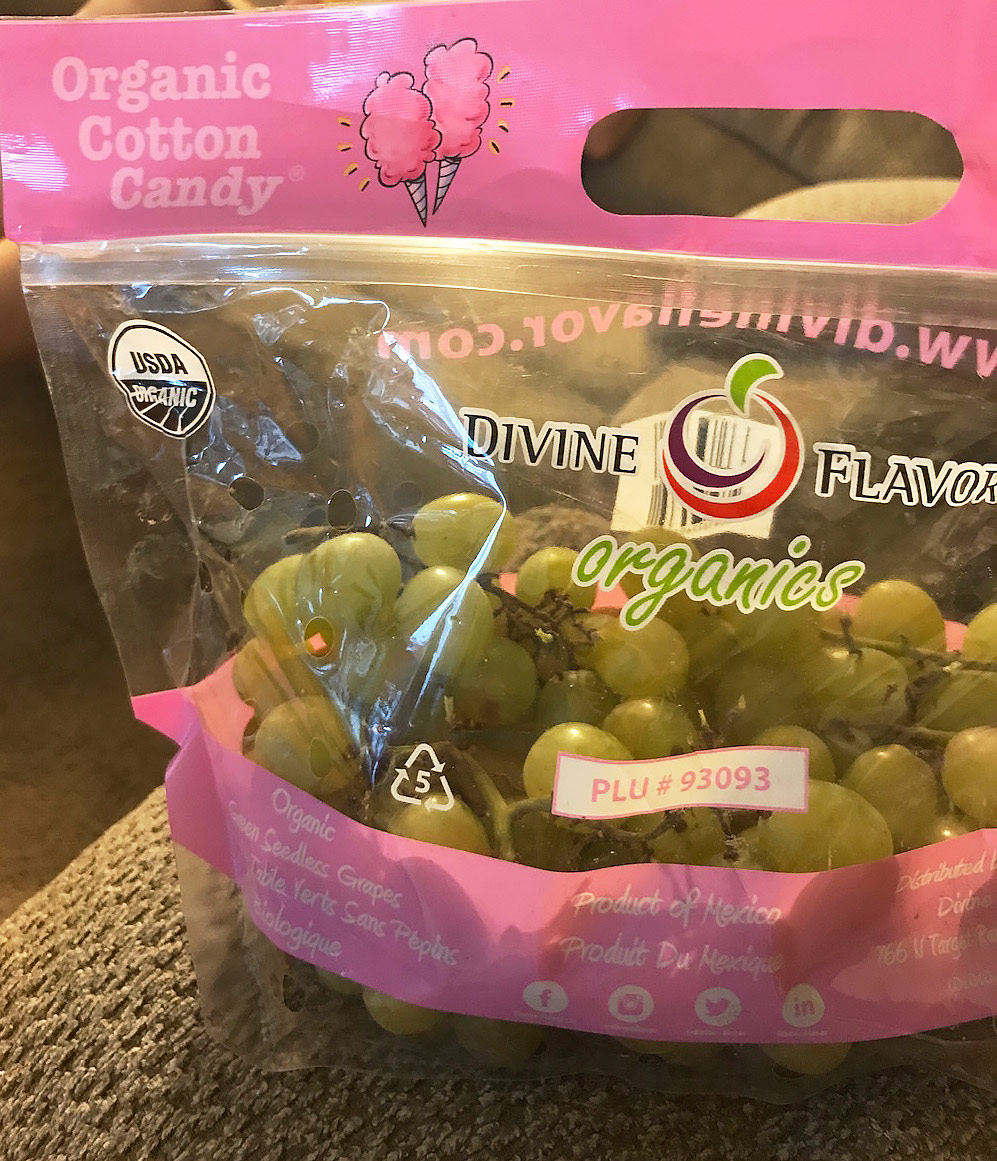
Cotton Candy Grapes: The Science Behind the Sweet, Carnival Taste

A new breed of green grape isn't fluffy or flossy, but it tastes just like cotton candy, according to news sources.
The carnival-evoking taste isn't the product of genetic engineering or artificial flavors, but rather the result of regular plant breeding, NPR reported.
"When you go to the supermarket, there's, like, 15 kinds of apples — Fuji, Pink Lady, Gala, Braeburn. The list goes on," David Cain, a horticulturalist in charge of fruit breeding at International Fruit Genetics in Bakersfield, California, told NPR. "We want to give consumers the same array of flavors for grapes." [Chew on This: 8 Foods for Healthy Teeth]
To make the Cotton Candy grape, Cain and his colleagues hybridized two grape species: a type of Concord-like grape (the grape used in Welch's jams, jellies and juices) and a variety of Vitis vinifera, a common grape found at grocery stores across the country, Cain told NPR.
The result was a sugary-sweet hybrid: for every 100 grams (0.2 lbs.) of grapes, there's about 18 g (0.03 lbs.) of sugar, NPR reported. That's about 12 percent more sugar than typical store-bought grapes, NPR said.
Besides the Cotton Candy grape, researchers are also working on breeding hybrid grapes that taste like strawberries, pineapples and mangos, Cain said.
The result may be sweet, but making them was laborious. Because seedless grapes are unable to reproduce without help, horticulturalists had to remove the grapes' embryos from the plants and transfer them to individual test tubes, where they grew before being planted in a field, according to NPR.
Sign up for the Live Science daily newsletter now
Get the world’s most fascinating discoveries delivered straight to your inbox.
In all, Cain made about 100,000 test tubes before he came across the cotton-candy-tasting gem, NPR reported. The extra-sweet grapes hit supermarket shelves in 2011, but it wasn't until this year that Grapery, the grapes' distributor, ramped up production from the original 2 acres to 100 acres (0.8 to 40 hectares), Cain told NPR.
"The whole process takes at least six years and sometimes up to 15 years," to create a new grape hybrid, Cain told NPR. But these sweet bites are doing well in supermarkets. The Cotton Candy grapes cost about $6 per lb. (0.4 kilograms), more than twice the price that seedless grapes cost in 2016 ($2.88/lb.), according to Statista, a company that provides statistics.
But that price hasn't deterred customers, especially those looking for a sweet snack.
"A lot of fruit becomes tasteless by the time somebody buys it," Cain told NPR. "We want to change that."
Original article on Live Science.

Laura is the archaeology and Life's Little Mysteries editor at Live Science. She also reports on general science, including paleontology. Her work has appeared in The New York Times, Scholastic, Popular Science and Spectrum, a site on autism research. She has won multiple awards from the Society of Professional Journalists and the Washington Newspaper Publishers Association for her reporting at a weekly newspaper near Seattle. Laura holds a bachelor's degree in English literature and psychology from Washington University in St. Louis and a master's degree in science writing from NYU.









